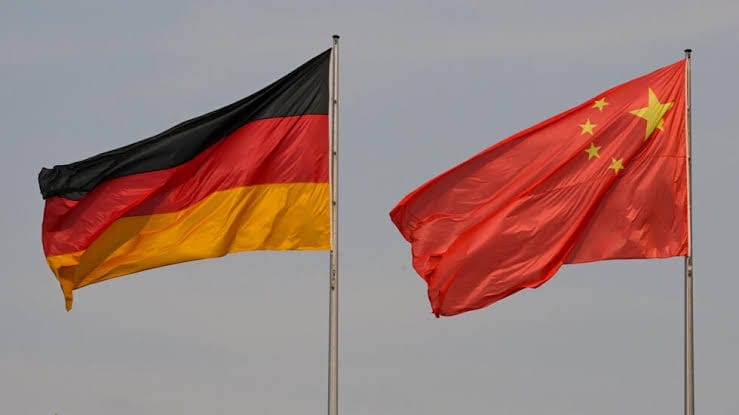Beijing summons German envoy over FM’s ‘dictator’ comment

Beijing summoned the German ambassador to China after Foreign Minister Annalena Baerbock called President Xi Jinping a “dictator”, Berlin said Monday, in the latest flare-up of tensions between the countries.
While they are major trade partners, Berlin-Beijing ties have been fraying as some in the German government take a harder line over issues ranging from human rights to Taiwan.
Baerbock, who has pushed for a more hawkish line, made the remarks in a Fox News interview on September 14 during a visit to the United States.
While talking about the Ukraine war, she said: “If Putin were to win this war, what sign would that be for other dictators in the world, like Xi, like the Chinese president? So therefore Ukraine has to win this war.”
A foreign ministry spokesman in Berlin confirmed to AFP that Germany’s ambassador “was summoned to the Chinese foreign ministry (on Sunday)” in relation to the remarks.
The confirmation that China summoned ambassador Patricia Flor came after China said earlier Monday that it was “strongly dissatisfied” with Baerbock’s remarks.
“(The comments) are extremely absurd and are a serious infringement of China’s political dignity and an open political provocation,” foreign ministry spokeswoman Mao Ning said at a daily news conference.
Asked about China’s protests over her remarks during a visit to New York, Baerbock replied only that she had “taken note” of them.
A government spokesman refused to comment on what Chancellor Olaf Scholz’s view was about the remarks.
But the spokesman added that it was clear “that China is ruled by a Communist, one-party regime, and it is also clear that this does not correspond to our idea of a democracy”.
- Harder line –
Sunday was the third recent occasion that China has summoned Germany’s ambassador.
Beijing also did so after Germany’s education minister visited Taiwan in March, the first cabinet-level German visit to the island in 26 years.
Beijing claims Taiwan as its own territory to be seized one day, and has been ramping up pressure on the self-ruled, democratic island.
In addition, the German envoy was called in following a G7 foreign ministers’ statement about Taiwan in August 2022, when Germany was holding the presidency of the group.
Germany is taking a harder line against China, and in July published a new policy against a more “assertive” China after months of wrangling within the government over its strategy.
It marks a fine balance between the two differing positions in its coalition government, calling Beijing a “partner, competitor, systemic rival”.
Baerbock, from the Green party, has called for a tougher stance and for a greater emphasis on human rights, while Scholz, a Social Democrat, has backed a more trade-friendly stance.
There are also growing concerns in Berlin about potentially risky Chinese investments at home and German businesses’ heavy reliance on doing business in China.
Earlier this week, a source confirmed Germany had blocked a complete Chinese takeover of a satellite startup aimed at rivalling Starlink on national security grounds.
Last year, the government blocked the sale of two chipmakers to Chinese investors due to security concerns.
The proposed sale of a stake in Hamburg port to a Chinese firm sparked a furious political row, but Scholz ultimately approved the acquisition of a stake, albeit at a reduced size.
by Sam REEVES
©️ Agence France-Presse











